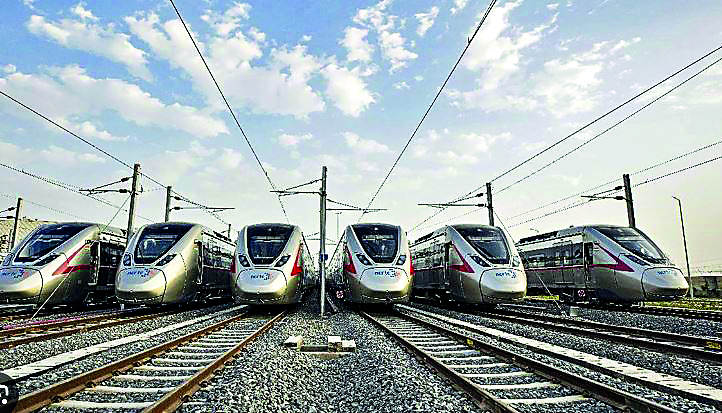No question of partial; want complete compliance of order: SC to Delhi govt

New Delhi: The Supreme Court on Tuesday made it clear that there can be no partial compliance of its order directing the Delhi government to release funds for the Regional Rapid Transit System (RRTS) project and complete compliance of its directions must take place according to the schedule.
The RRTS project entails semi-high speed rail corridors connecting Delhi to Meerut in Uttar Pradesh, Alwar in Rajasthan, and Panipat in Haryana.
The apex court observed the problem was that the Delhi government can make a budgetary provision of Rs 580 crore for advertisements but it cannot make a budgetary provision of Rs 400 crore which it is supposed to pay for the project.
‘You have to be arm twisted for the money which you are liable to pay. That is the problem. Why are you doing this?’
‘The issue is why you have not made budgetary provision. You can make budgetary provision for Rs 580 crore odd for advertisements. But you can’t make budgetary provision of Rs 400 odd crore which you are supposed to pay,’ a bench of justices Sanjay Kishan Kaul and Sudhanshu Dhulia said.
During the hearing, the bench was informed that the Delhi government has partially complied with its order and an amount of Rs 415 crore has been released as per sanction order of November 24, 2023 but it may not have been credited to the account of the National Capital Region Transport Corporation (NCRTC).
‘However, the sanction order itself stated that it is in ‘partial compliance’. There can be no question of partial compliance. The complete compliance must take place as per the schedule. List on December 7,’ the bench said.
While hearing the matter on July 24, the apex court had berated the Delhi government for “throwing its hands up” over contributing its share towards the RRTS corridor, and directed it to provide Rs 415 crore for the project within two months. On Tuesday, while hearing an application raising the issue of non-payment of funds by the Delhi government for the project, the bench observed the problem was that the Delhi government wanted all money to be drawn out of environment funds only. ‘We will not look at it again and again. You don’t want to make budgetary provision that is the problem. What you have to pay, you have to pay. That’s all we know,’ it said.
Senior advocate ANS Nadkarni, representing NCRTC, said the Delhi government in its sanction order itself says that the money is being released in partial compliance of the court’s order.
He said only Rs 415 crore has been sanctioned and Rs 150 crore for Delhi-Panipat project has not been sanctioned. ‘Your lordships had said that if the funds are not transferred, the order will come into operation. Today, the funds have not been transferred,’ he argued.



